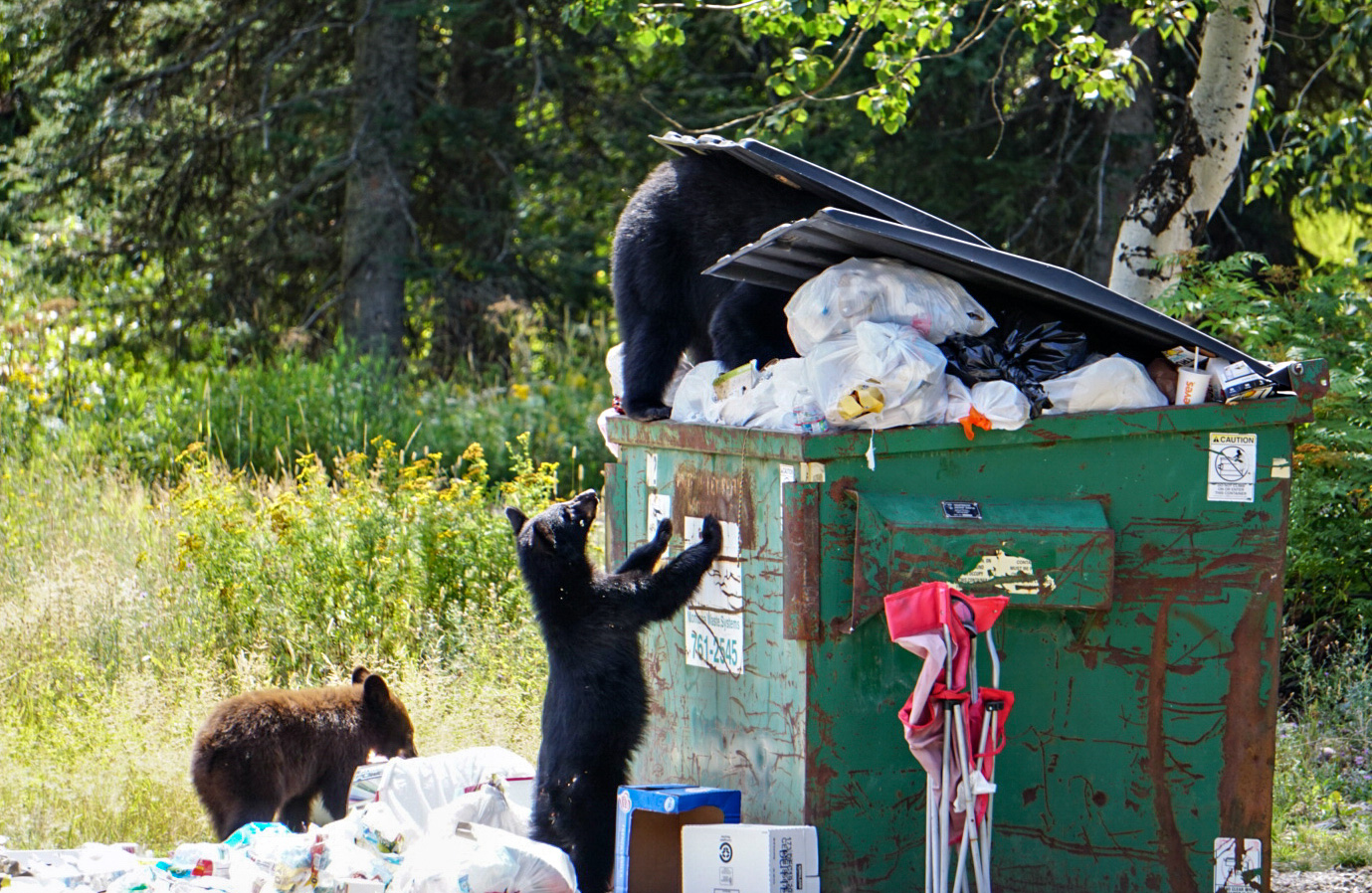$1M in Funding Available for Community-led Bear-Conflict Prevention in Montana
As preventative measures such as electric fences and animal-resistant garbage containers prove effective at reducing human-bear conflicts in the region, new funding is available through the America the Beautiful Challenge grant program awarded to Montana Fish, Wildlife and Parks.
By Tristan Scott
As bears begin emerging from hibernation, wildlife conflict specialists in northwest Montana are preparing for a busy spring. But they hope that by continuing to equip communities with tools to avoid conflicts, they’ll spend more time on prevention this season, and less time setting traps.
It’s a strategy that’s been paying off in recent years as bear-human conflict experts ramp up their education and outreach curriculum and push preventative measures, such as installing electric fences and investing in bear-resistant garbage containers in order to get ahead of the curve. Although a high call volume for human-bear conflicts has continued to overwhelm specialists with Montana Fish, Wildlife and Parks (FWP), they’ve refined their effort to target the root of the problem — unsecured food and other wildlife attractants in the wildland urban interface (WUI).
Trapping and relocating bears, they say, is a short-term solution to a persistent problem; convincing residents to lock up their grain, electrify their chicken coops and store their barbecue grills indoors, on the other hand, makes a lasting difference.
“I can set trap after trap after trap, but if the unsecured attractants are still there, the problem will keep recurring,” Justine Vallieres, a wildlife conflict management specialist for FWP’s Region 1, told members of the Interagency Grizzly Bear Committee (IGBC) over the winter.
For Vallieres, pushing preventative measures has led to higher social tolerance, with residents more willing to entertain the idea of non-lethal conflict prevention as a means to secure their livestock and grain.
This spring, that focus on community-led prevention strategies in Montana will be boosted by $1 million in funding to support non-lethal carnivore prevention tools in grizzly bear country. Made possible through the Montana Community-Bear Conflict Prevention Efforts Fund, the money is provided through the America the Beautiful Challenge grant program administered by the National Fish and Wildlife Foundation and awarded to FWP.
The application deadline for the first round of funding is March 24. Communities and organizations interested in applying can find more details and project guidelines here.
“Investing in bear-resistant infrastructure and education is one of the smartest ways to prevent conflicts,” said Steve Primm, conflict reduction manager at the Heart of the Rockies Initiative, which is administering the grant project. “As grizzly populations expand, more communities are learning what it takes to live and work alongside them. This program is intended to adopt the community-led tools that are most proactive and effective at increasing safety for bears and humans.”
Heart of the Rockies Initiative is a Montana nonprofit organization focused on private land conservation in the Rocky Mountain region and supporting landowners in their efforts to sustain working lands and wildlife habitat.
Eligible applicants include tribal, county, and municipal governments, school districts, and nonprofit organizations. The grants operate on a reimbursement basis, covering costs incurred by recipients for the following community investments:
- Bear-resistant waste solutions – Purchase and distribution of bear-resistant garbage cans, dumpsters, grease traps, and food storage lockers.
- Infrastructure improvements – Establishing or upgrading rural transfer stations to better secure attractants.
- Public outreach and education – Developing educational materials and programs to increase public awareness about bear safety.
- Electric fencing – Installing portable or permanent electric fencing and electric drive-over mats to protect orchards, compost piles, garbage, livestock, and grain storage.
- Program support – Funding staff time dedicated to community-led conflict reduction and education efforts.
Applicants may request a minimum of $10,000 and a maximum of $150,000.
In addition to supporting community-led projects, the resources are being deployed to assist agricultural producers and landowner-led groups adopt and expand conflict prevention strategies such as carcass removal programs, electric fencing, and range rider initiatives.
Due to the sprawling footprint of FWP’s Region 1, Vallieres shares geographic responsibilities with her colleague Erik Wenum. Whereas Vallieres is responsible for human-bear conflicts in a region beginning just south of the Whitefish city limits and running up to the Canadian border — as well as Eureka, the North Fork, West Glacier, and Marias Pass — Wenum is responsible for portions of the Flathead Valley extending south of Whitefish into the Swan Range and east to the Spotted Bear Wilderness area.
Last year, Vallieres handled 44 conflict calls involving grizzly bears that required 33 responses versus 96 conflict calls requiring 65 responses in 2023. A response is counted as the team’s initial response to a conflict site, not all the other instances in which the bear managers have to revisit the site, to check culvert traps, for example.
Those figures do not account for calls involving conflicts with black bears.
Wenum, meanwhile, encountered an uptick in calls and responses in 2024 compared to the year prior, handling 159 conflict calls related to grizzly bears in the southern portion of Region 1 and responding to 64 of them. That’s up from the 128 calls and 41 responses in 2023. Although Wenum’s management actions last year included 20 grizzly bear captures and two removals, his preventative efforts included installing nearly 60 electric fences and securing 71 grain bins in the Lower Valley, using either electrified pallets or so-called “unwelcome mats,” which are placed in front of grain bins to discourage bears.
It’s a strategy the agency’s top administrators are embracing.
“It is critical our department works with Montana communities to help provide the funding to implement tools and educate the public on the best ways of reducing human-wildlife conflicts,” FWP Director Christy Clark said.